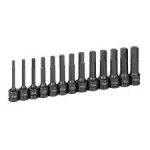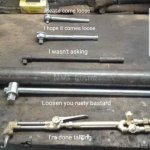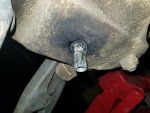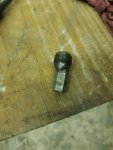Yes, I think heat is the key, I did try the vice-grips (larger ones to get more torque) and it took off pieces of the plug head without any plug movement.
If the plug Allen head wouldn't have stripped first, then the 5/16" key would have broken, it was already twisted half way.
I will give the heat a shot first, it feels like that should help it loosen up.
Also, I like the Torx idea, I can see how those teeth can be hammered in on the largest bit that would fit, but would have to be a 1/2" drive because I already had a 3/8" adapter that started to shear from the high torque. In theory the Allen has more surface and it should be able to provide a higher torque vs. torx, but the torx could cut deeper (not going too crazy with the hammer like Mogman said) and get a better grip...will see what happens, still have the welding option as the last resort







